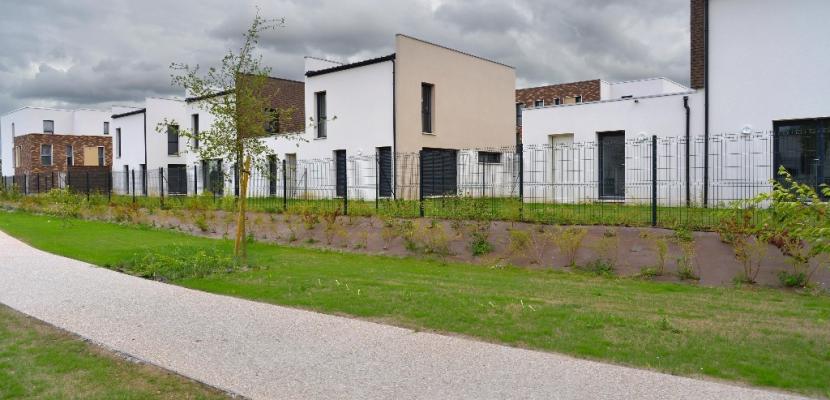Image

OCTAVE
Published on 13 June 2019

France
This is the good practice's implementation level. It can be national, regional or local.
About this good practice
The isolation of the elderly represents a major risk of loss of autonomy and the maintenance in the social life is an important factor of the good aging of the person. Too, the number of older people will double in 15 years in Lille European Metropolis. To cope with these challenges, Lille European Metropolis has proposed new housing for the elderly. The project is based on three main principles:
- Housing are adapted to aging in their layout but also their equipment (adapted bathroom) in a classic residence. With an area of approximately 54m², Octave allow the elderly people to maintain social ties. They are not stigmatizing or stigmatized. The Octave promote intergenerational exchanges.
- The elderly benefit from a personalized support service: every 15 days, the visit of a caregiver. The caregiver encourages them to participate in local activities and to maintain their social life. It must detect situations of fragility and loss of autonomy. He works in collaboration with the professionals of the home and ensures the good coordination of the interventions. It stimulates conviviality between the elderly and encourages them to help each other.
- Solidarity between the elderly and the creation of neighborhood bonds
OCTAVES housing is allocated to people over 60 years of age who are autonomous, alone or in a relationship, and who wish to move into adapted housing. They're not establishments and do not include any collective pieces or personnel permanently present on site.
- Housing are adapted to aging in their layout but also their equipment (adapted bathroom) in a classic residence. With an area of approximately 54m², Octave allow the elderly people to maintain social ties. They are not stigmatizing or stigmatized. The Octave promote intergenerational exchanges.
- The elderly benefit from a personalized support service: every 15 days, the visit of a caregiver. The caregiver encourages them to participate in local activities and to maintain their social life. It must detect situations of fragility and loss of autonomy. He works in collaboration with the professionals of the home and ensures the good coordination of the interventions. It stimulates conviviality between the elderly and encourages them to help each other.
- Solidarity between the elderly and the creation of neighborhood bonds
OCTAVES housing is allocated to people over 60 years of age who are autonomous, alone or in a relationship, and who wish to move into adapted housing. They're not establishments and do not include any collective pieces or personnel permanently present on site.
Resources needed
A full-time job has been created to manage OCTAVES.
Managed by Lille European Metropolis, this project is supported by several partners: social landlord, gerontological action professionals, representatives of municipalities, the Department of Nord, CARSAT and the Féron Vrau center.
Managed by Lille European Metropolis, this project is supported by several partners: social landlord, gerontological action professionals, representatives of municipalities, the Department of Nord, CARSAT and the Féron Vrau center.
Evidence of success
Octave is seen as a nice social ambition because because it promotes the dependency of the elderly.
A second operation, announced for 2020, is planned at Lille-Center.
A second operation, announced for 2020, is planned at Lille-Center.
Potential for learning or transfer
Many housing projects are emerging and residences for seniors are increasing. However, this offer is generally reserved for the wealthy elderly. With OCTAVE, Lille European Metropolis is part of a national objective and proposes a new model of solutions accessible to elderly people with modest resources in order to better meet needs and expectations.
The targets of OCTAVE housing are:
- Elderly people who are concerned about the difficulties associated with aging
- People who want to be advised and supported while remaining independent
- Elderly people whose children are geographically distant and who need to be followed
- People who suffer from a situation of isolation or difficulty in assuming widowhood,
- People who are weakened in one way or another by aging and feel the need to be supported.
Finally, OCTAVE housing is located in differents age-friendly environments (urban or rural - collective or individual), close to public transports, services and shops.
The targets of OCTAVE housing are:
- Elderly people who are concerned about the difficulties associated with aging
- People who want to be advised and supported while remaining independent
- Elderly people whose children are geographically distant and who need to be followed
- People who suffer from a situation of isolation or difficulty in assuming widowhood,
- People who are weakened in one way or another by aging and feel the need to be supported.
Finally, OCTAVE housing is located in differents age-friendly environments (urban or rural - collective or individual), close to public transports, services and shops.
